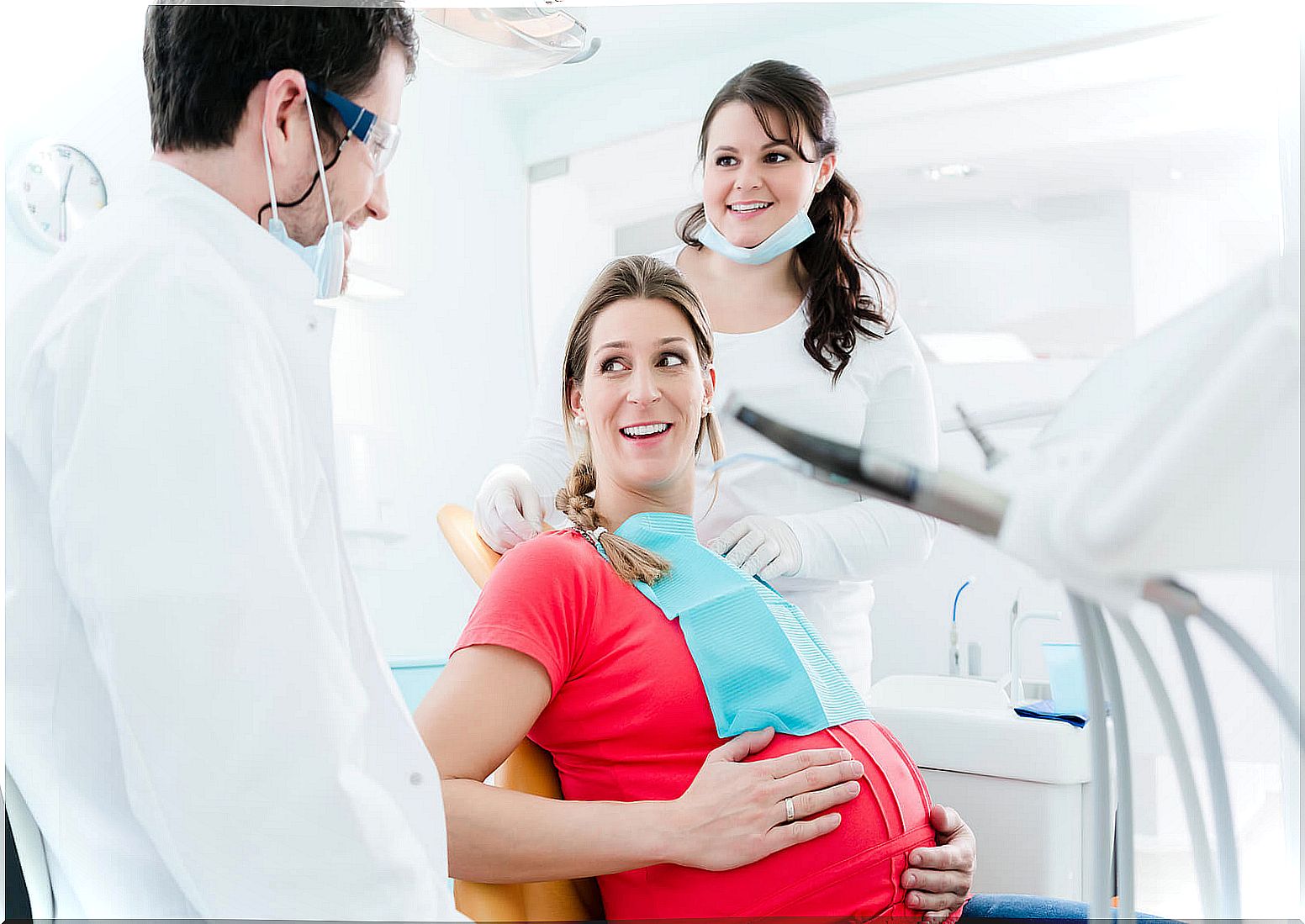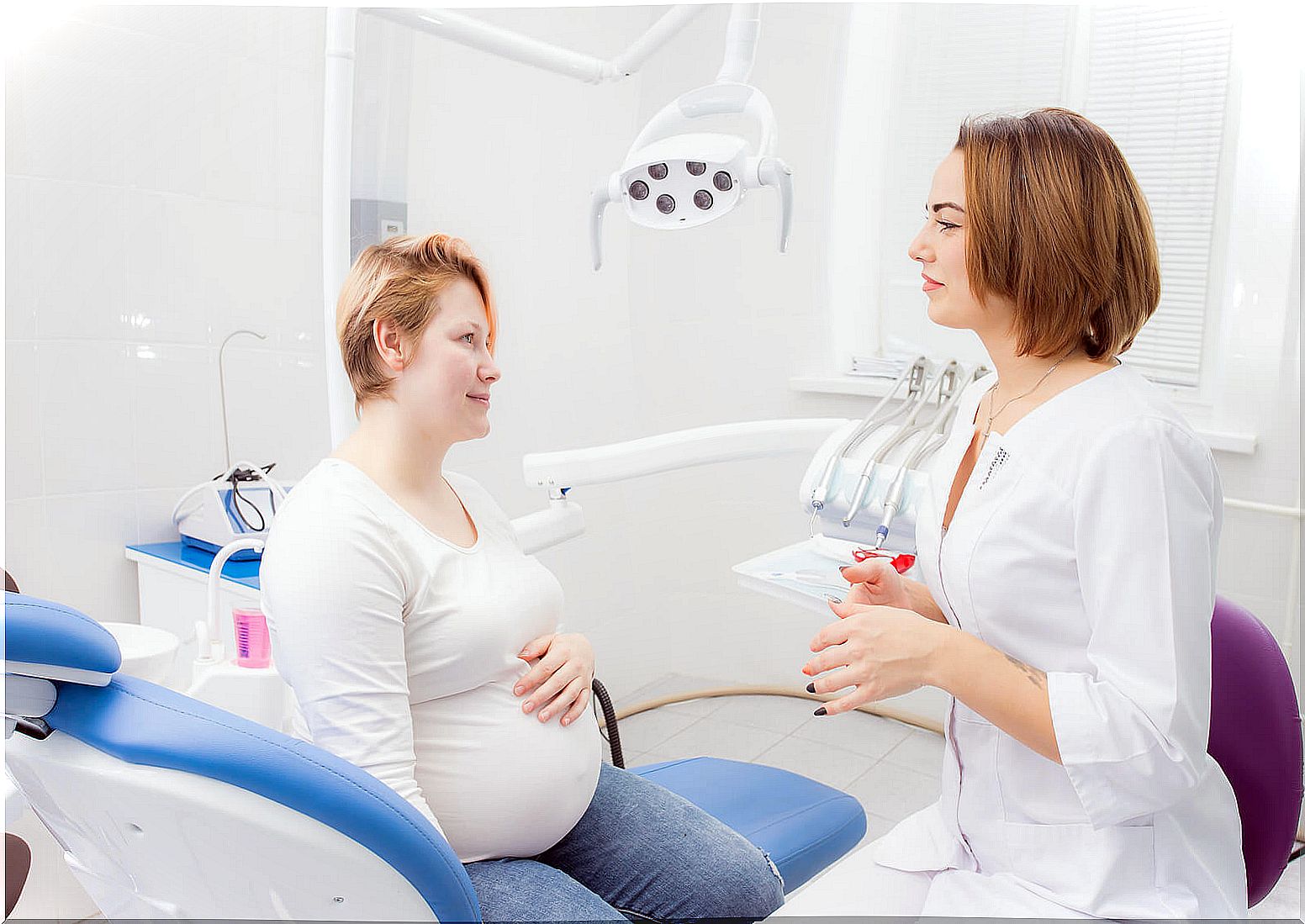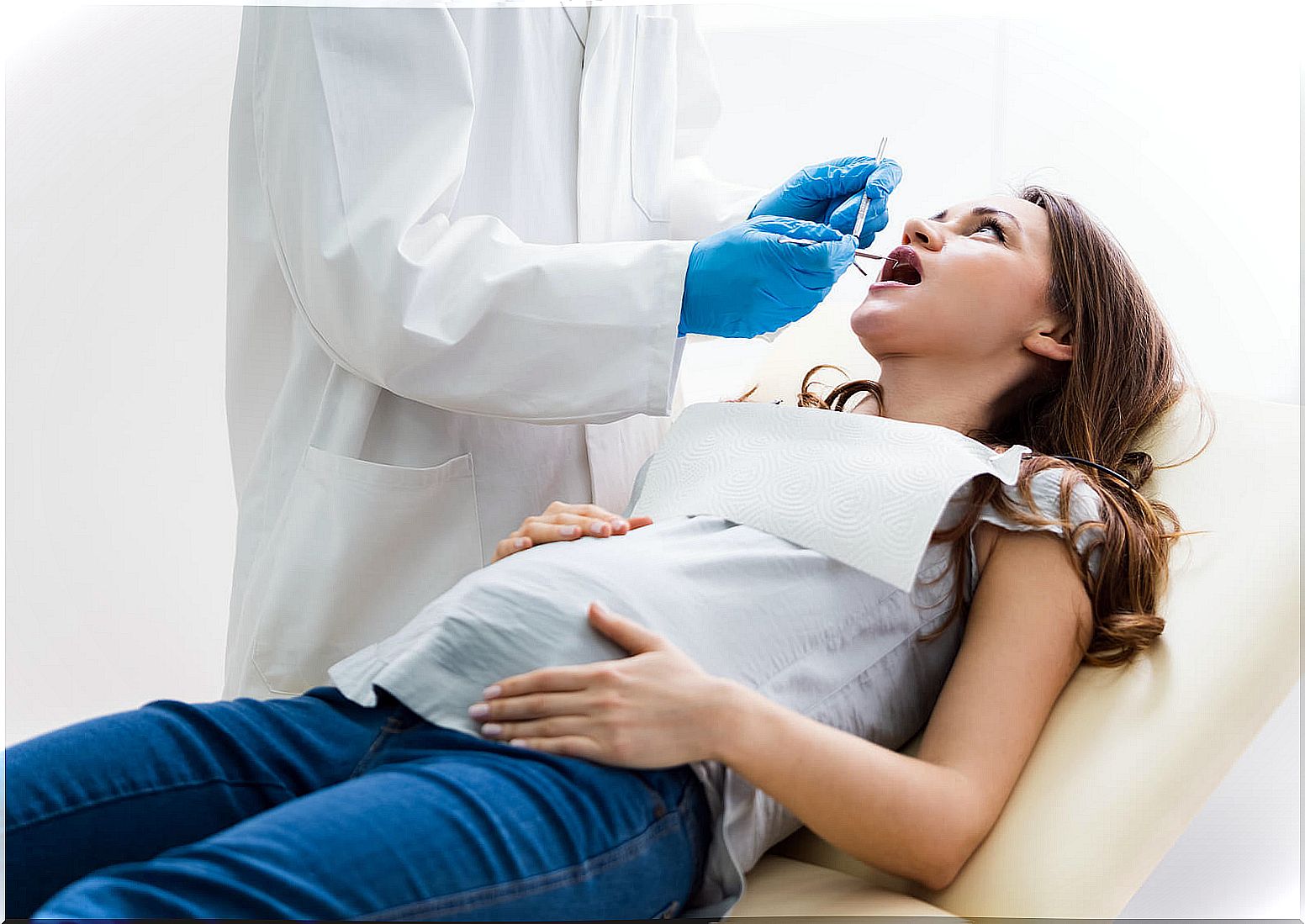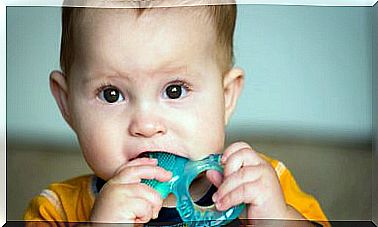Dental Problems During Pregnancy

During pregnancy, physiological changes occur in a woman’s body that can predispose her to certain conditions. The appearance of dental problems during pregnancy can be due to hormonal changes, diet and hygiene practices. Next, we describe some of the disorders that occur in the mouth of pregnant women more frequently.
Dental problems during pregnancy

Gingivitis
Gingivitis is one of the most common dental problems during pregnancy. This is the inflammation of the gums, which turn a deep red color, swell, hurt and bleed easily.
Changes in the gingival tissue are associated with the presence of bacterial plaque on it, a product of incorrect oral hygiene. But it is also due to hormonal changes that occur during pregnancy.
High levels of estrogens and progesterone increase circulation in the skin and mucous membranes. This causes the gingiva to have an exaggerated inflammatory response to irritants.
This problem is noticeable from the second or third month of pregnancy and reaches its worst moment in the eighth month. It usually improves after delivery. Bleeding, sensitivity, and pain, on some occasions, lead the woman to decide to stop brushing her teeth.
This actually makes the situation worse. Lack of hygiene increases the accumulation of bacterial plaque and favors the appearance of tartar and greater gingival inflammation.
Periodontal disease
Of the most common dental problems during pregnancy, periodontal disease is the condition that results from gingivitis that is not controlled or treated in time. The accumulation of bacteria in the gums can spread to the deeper tissues that support the dental elements, generating an infection of them.
Periodontal disease can cause tooth mobility. In addition, it is associated with spontaneous abortions, premature deliveries and children with low birth weight. Its treatment is of utmost importance during pregnancy.
Cavities
There are popular beliefs that associate pregnancy with cavities due to the loss of calcium from the teeth to form the new being in the womb. In reality, there is no scientific evidence to support this theory.
It is the new conditions in the mouth of the pregnant woman that can predispose to the appearance of cavities. For example, the decrease in saliva that compromises self-cleaning, changes in dietary habits and the craving or “cravings” for foods with a lot of sugar content.
Poor dental hygiene due to sensitivity or bleeding of the gums causes the accumulation of bacterial plaque and this also favors cavities. Tooth enamel eroded by stomach acid from reflux or vomiting associated with pregnancy is more susceptible to this disease.
Other dental problems during pregnancy
There are other events in the mouth that are associated with the changes that the body undergoes during pregnancy:
- Epulis gravidarum or pregnancy tumor : it is a benign tumor associated with the presence of gingivitis that is located on the gum. It is an inflammatory cyst that increases the volume of an area of the gingival tissue. It causes pain, bleeding, and difficulties speaking and chewing. In general, they disappear on their own after delivery, but can be removed surgically if they cause discomfort.
- Xerostomia or lack of saliva : some pregnant women have dry mouth associated with hormonal changes.
- Excess saliva – This is rare, but some women experience increased salivation during pregnancy.
- Dental erosions : in general, they occur during the first trimester, as a result of the action of stomach acids that reach the mouth through vomiting, gastroesophageal reflux and morning sickness.
Prevent to avoid dental problems during pregnancy
Ideally, women planning pregnancy should visit the dentist for necessary treatments and have a healthy mouth before becoming pregnant. A healthy oral cavity during pregnancy is vital to avoid the discomfort caused by the conditions.
Maintaining proper oral hygiene, brushing the teeth and gums three times a day with a soft bristle brush and fluoride toothpaste, is necessary. In addition, it should be complemented with the use of dental floss and mouthwashes.
The pregnant woman’s diet must provide a sufficient amount of vitamins, proteins, calcium, phosphorus and folic acid. In addition, foods with high sugar content, such as soda, candy, and pastries , should be avoided.
Another fundamental aspect that must be taken into account are dental visits. You should go to the dentist when the pregnancy is confirmed to do a general check-up, a dental cleaning if necessary and add fluoride if nausea allows it.

The professional will give all the advice on oral care and will indicate if any specific treatment needs to be carried out and when it is convenient to do it. Dental check-ups must be repeated in each trimester of pregnancy and any problem that arises in the oral cavity should be attended immediately.
With regard to dental treatments, it will always be the dentist who best advises on which procedure is best to perform and at what time. But the usual thing is that they are scheduled during the second trimester, which is when it is safest for the baby and most comfortable for the mother.
Regardless, emergencies, pain control, and elimination of infections should be done immediately. They put the fetus at risk and increase the stress of the mother, which can lead to contractions and premature births.
Caring for your mouth during pregnancy
Pregnancy is a period in a woman’s life in which multiple changes occur that allow the formation of a new life. These affect the situation of the mouth that, if not cared for properly, can lead to dental problems during pregnancy.
Going through pregnancy with dental problems not only causes discomfort for the mother, but also puts the fetus at risk. Dental check-ups during pregnancy, a balanced diet and correct oral hygiene are necessary to be able to gestate with a healthy mouth.










